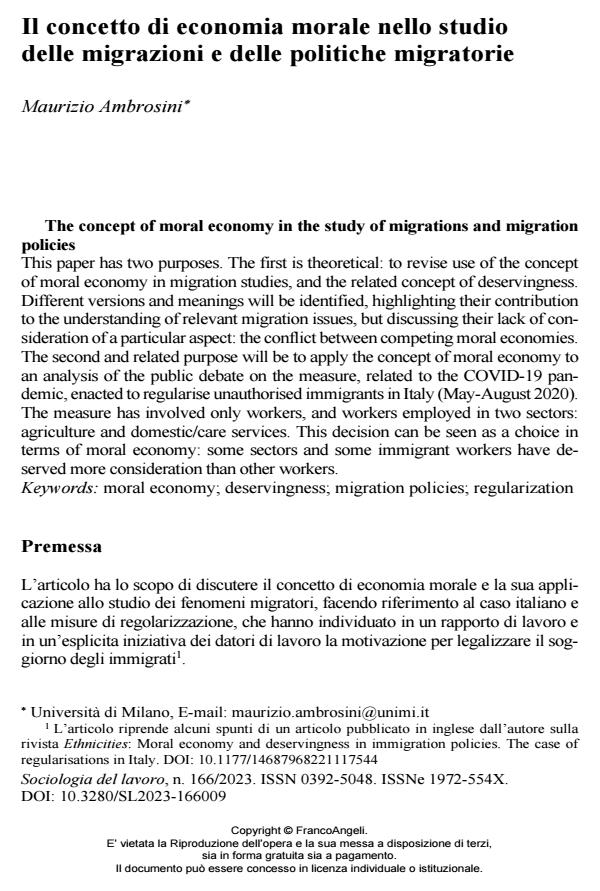The concept of moral economy in the study of migrations and migration policies
Journal title SOCIOLOGIA DEL LAVORO
Author/s Maurizio Ambrosini
Publishing Year 2023 Issue 2023/166
Language Italian Pages 16 P. 203-218 File size 227 KB
DOI 10.3280/SL2023-166009
DOI is like a bar code for intellectual property: to have more infomation
click here
Below, you can see the article first page
If you want to buy this article in PDF format, you can do it, following the instructions to buy download credits

FrancoAngeli is member of Publishers International Linking Association, Inc (PILA), a not-for-profit association which run the CrossRef service enabling links to and from online scholarly content.
This paper has two purposes. The first is theoretical: to revise the use of the concept of moral economy in migration studies, and the related concept of deservingness. Different versions and meanings will be identified, highlighting their contribution to the understanding of rele-vant migration issues, but discussing their lack of consideration of a particular aspect: the conflict between competing moral economies. The second and related purpose will be to apply the concept of moral economy to an analysis of the public debate on the measure, related to the COVID-19 pandemic, enacted to regularise unauthorised immi-grants in Italy (May-August 2020). The measure has involved only workers, and workers employed in two sectors: agriculture and domes-tic/care services. This decision can be seen as a choice in terms of moral economy: some sectors and some immigrant workers have de-served more consideration than other workers.
Keywords: moral economy; deservingness; migration policies; regulari-zation
Maurizio Ambrosini, Il concetto di economia morale nello studio delle migrazioni e delle politiche migratorie in "SOCIOLOGIA DEL LAVORO " 166/2023, pp 203-218, DOI: 10.3280/SL2023-166009